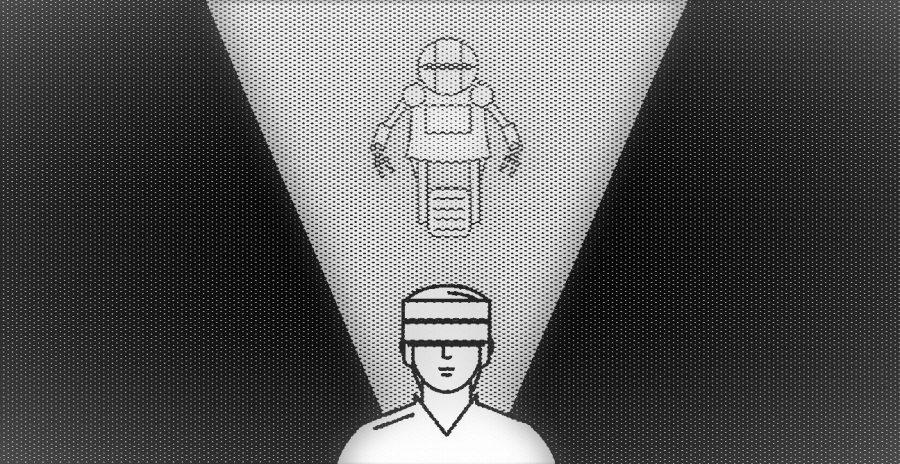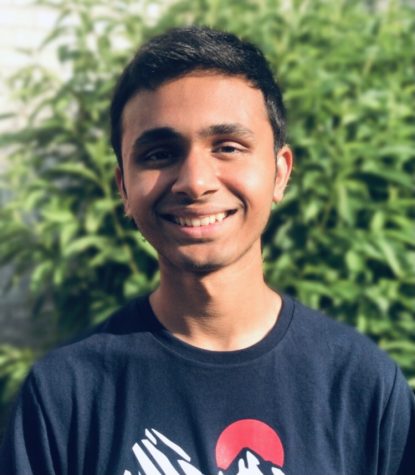AI isn’t going to control the world. It already does.
January 15, 2021
When people imagine a future where society has developed advanced artificial intelligence, they commonly visualize dystopian outcomes, where humans have fallen to the mercy of intelligent robots and death machines. This shared imagination of the future has given us amazing films and novels, but it also reveals a collective lack of awareness that average citizens have when it comes to the current state of technology. We aren’t awaiting the doomsday scenario of AI robots taking over the world; we’re living in it right now. The artificial intelligence systems that we fear so much have already been implemented. They already control us, with every click, scroll and swipe on social media.
Social media has transformed society, industry and culture in an unprecedented manner. It has connected the world and reunited people through a shared platform, revolutionized business models and has become deeply embedded into culture and politics. Most users today view social media as a separate universe on the internet, accessed through handheld devices, but this couldn’t be farther from the truth; social media posts, feeds and movements all have real world consequences. For example, since May of 2020, organizers and activists across the world have heavily relied on social media for organizing protests for the Black Lives Matter movement. From #blackouttuesday to viral videos of police brutality, social media served as a lens for hundreds of millions of Americans during a time of social change.
“Social media exposed me to several opportunities to support my community,” senior Taylor Winslow said. “Whether it was someone posting on their Instagram story promoting a local protest or informing their viewers of another black death, I was always kept up to speed”.
Resources and information on social media can encourage actions just like they did for Taylor, and this extends to even larger scales such as encouraging voting in local and federal elections. But while these examples may be forces for good, they provide overwhelming evidence that social media feeds influence real world actions by a factor of billions. The question still remains: what does this have to do with AI?
Facebook, Instagram, Twitter and other social media platforms have billions of users combined, and the most efficient way for them to generate personalized feeds for every user is to use a machine learning algorithm. As a user engages with the platform over time, this algorithm gathers more and more data points, allowing it to design a personalized feed that changes before every swipe and scroll. This means that since social media is a large slice of our daily intake of the world, our perception of reality —and over time, our worldview—is shaped by an intelligent machine, one that knows more about people than they may think. If this fact isn’t frightening enough, consider this: the nature of a machine learning algorithm is such that its processes to achieve a desired output are almost entirely generated by the system itself. Programmers at Twitter, Facebook and other companies have designed their algorithms with a general goal in mind: to maximize profit by maximizing advertising revenue. Any algorithm would recognize that in order to achieve this, it must keep the user scrolling and engaging for as long as possible. In other words, it uses any means necessary to keep your eyes glued to your screen.
“The sheer amount of time one can spend scrolling through [TikTok] is unprecedented compared to other social media platforms,” senior Anay Basu said. “It is the only aspect of any social media platform that is totally infinite, and they use your data to show content that it knows you will enjoy”.
Many citizens and interest groups have voiced their concern about social media addiction, but it’s very clear as to what causes it. Simply put, artificially intelligent systems exploit addiction for corporate profit; an imposed addiction upon an unbeknownst user, compounded by billions. It sounds like something out of a dystopian movie.
Ultimately, it’s paramount that this truth about these platforms is understood by everyone. Each user’s personal usage of social media does not entail a dystopian nightmare, but the larger system of control, aided by intelligent machines, is something that can hopefully be scaled back and regulated in the near future; one that doesn’t involve killer robots and the end of humanity.



